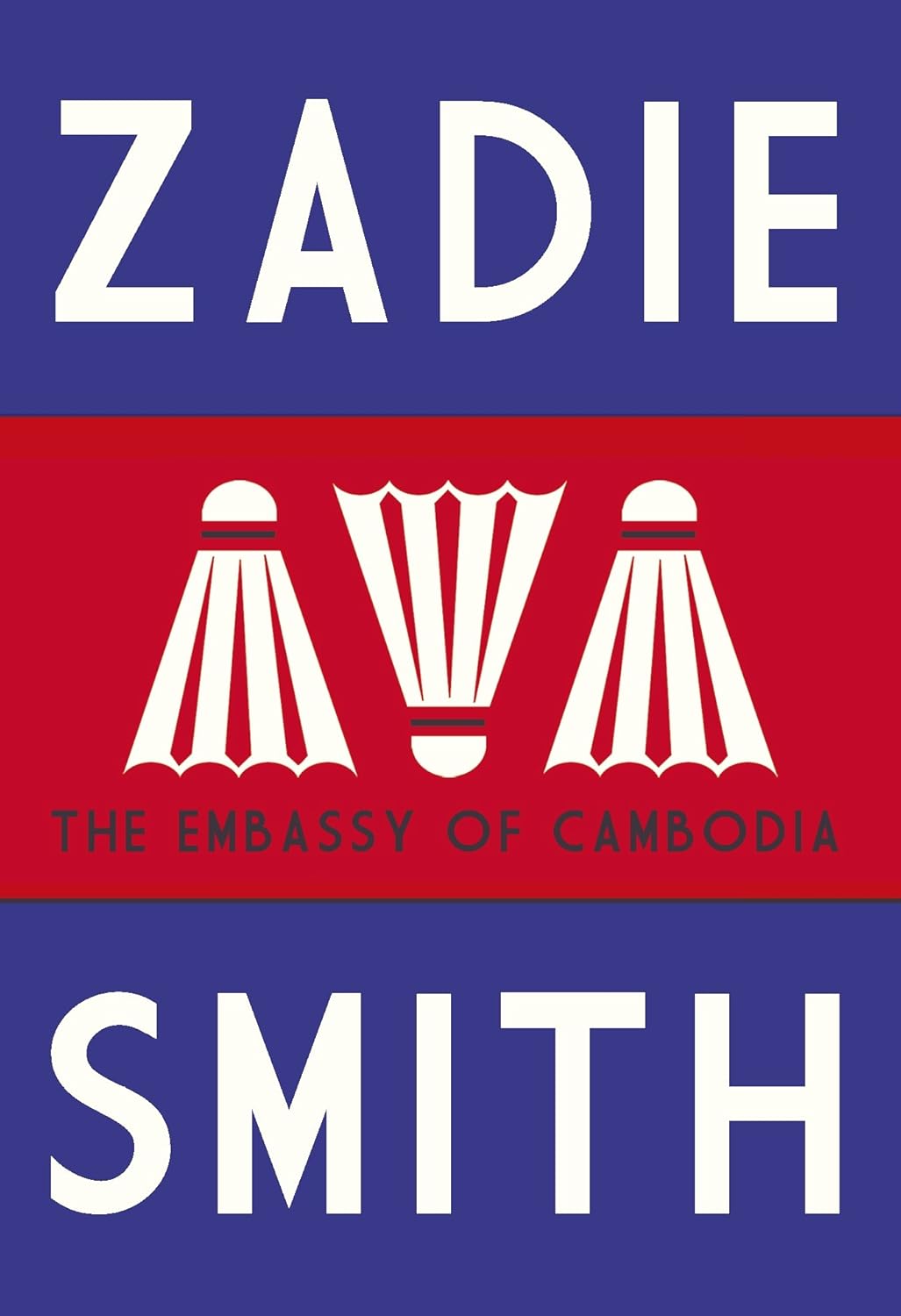Philip Hensher: why small is sweet
The publication of Zadie Smith's The Embassy of Cambodia alone in hardback marks a new and welcome trend

Refined challenge … Zadie Smith. Photograph: Rex
Some time in the mid-1970s, I was on the way to the till in the bookshop with a copy of Nicholas Fisk's just-published Grinny, a terrific sci-fi thriller about an alien intrusion in the guise of a forgotten great-aunt. I couldn't wait. But a member of my family stopped me. "How much!" he cried, alarmed. "How much! And for how many pages? How many?" It's true.Grinny, happily just reissued for a new readership, is not a long book, and fell foul of the principle that with fiction, you want to get your money's worth. I swapped my 27-and-a-half pages for something longer – I forget what – and went back for Grinny when I was unsupervised.
The same objections were raised this week when Penguin published a single short story by Zadie Smith, around 8,000 words, as if it were a novel, and charged £7.99 for the hardback, £2.99 for the ebook. My God! Charging eight quid for a book! Charging £2.99 for an ebook! You could get 20 extra turns on Candy Crush Saga for that!
The pricing of books is a great mystery to me, as it ought to be to all authors, but it seems that this is less than half what a full-length hardback novel goes for these days. Moreover, that full-length hardback novel is probably selling for a very reasonable amount, historically speaking. A short investigation of my shelves produces, as an example, a hardback novel published in 1995, Kazuo Ishiguro's The Unconsoledpriced at £15.99. This season's champion novel, Eleanor Catton's The Luminaries is priced at £18.99, which seems about right. Taking the two products as equal, there has been a price inflation here of about 18%. Not 18% a year, but over 18 years. If the same moderation in price applied to other areas of life, the average UK house would now cost £57,000, rather than £163,000. And, of course, nobody pays the cover price for a book; they pay the discounted price. So, in the field of books, we are buying houses for £26,000, or so. The full-length hardback novel is about two thirds the price of a couple of cinema tickets, which, considering what rubbish is on at the local cinema, seems pretty good value, comparatively speaking. The ebook is the price of two cappuccinos in the coffee shop that probably sits exactly where your local bookshop used to be.
Fiction is a house you can live in, but the size of that house is not dictated by its number of words. Nor by its price, really. One of the interesting unintended products of ebooks has been to remove the superficial burdens of length from the novel. Just as it makes no real sense to ask "How long is Grand Theft Auto?", so length is no longer the most interesting or important feature of novels when published in eformats. Richard House's splendid The Kills was a potentially daunting 1,000-page object in the flesh; on screen, it rose up and absorbed the reader without making their wrists ache. Conversely, the possibilities of works of short literature grow once it seems sensible to sell and price them individually. If, like tracks of pop music, a short story may be bought and downloaded individually, the attractiveness of the collection of short stories may be expected to diminish, like the pop album. This seems to be happening. The traditional collection of 12 or 14 short stories is perhaps healthy in the hands of its well-established exponents, Alice Munro or William Trevor. Short fiction is found in newly entwining forms, where disparate short narratives combine to make a larger whole – Tim Winton's The Turning – or it may be sold in small, discrete units, likeZadie Smith's The Embassy of Cambodia.
Of course, the novel has not always confined itself to well-defined lengths, and anyone who tells you the novel consists of a certain number of words, whereas the short story and the novella have their own established length, hasn't read widely enough. Thomas Love Peacock'sNightmare Abbey is definitely a full-scale novel, with a rich ensemble, entrelacement, subplots, two happy endings, a jilting and enough time for a substantial digression over the dinner table. It is all over in 26,000 words – one-tenth the length of Great Expectations and half The Great Gatsby. You could probably make the case for publishing half a dozen very short novels in a single volume – say Rasselas, Nightmare Abbey,The Castle of Otranto, The Shadow-Line, Castle Rackrent and Lady Susan – like a set of novellas or long short stories. But that would be insensitive to their effect. It is difficult to explain why Conrad's Typhoonworks best as a third of a volume and The Shadow-Line on its own. What is clear is that the publishing of such short or very short books, with their own particular effects of brevity and concision, has become a real possibility in recent years.
There have always been publishers willing to bring out individual short stories – the wonderful London bookshop John Sandoe has for some years given a specially written and printed short story to their favourite customers at Christmas, well worth collecting. We are, perhaps, at the beginning of a golden age of possibility, where writers can write at whatever length they choose, can bundle books together into one enormous whole, or ask readers to contemplate an exquisite singularity, charging them whatever they think they can get away with.
I rather look forward to publishers searching the back catalogues for individually publishable gems. Like most readers of the short story, I often raid collections for particular favourites, but very rarely read a whole collection from beginning to end. VS Pritchett's great "When My Girl Comes Home", or Tolstoy's "The Kreutzer Sonata", or Munro's "Hateship, Friendship, Courtship, Marriage", or John Cheever's "The Country Husband" or Eudora Welty's "Why I Live at the PO" are marvellous anthology pieces, and terrific components of collections. Once in a while, however, might we not reasonably be asked to look at them as a unique and perfect entity, rather than a chapter between chapters? We don't publish books in the same way they were originally conceived; the economic requirement that meant William Trevor's "Mrs Silly" could only be published in a magazine, or among 11 stories of similar length, has disappeared. Let's publish them independently, and let's buy them for £2.99 each.
The Embassy of Cambodia – what a pleasure to write it in italics as an independently published work, rather than the inverted commas that style guides would demand of a short story in a volume – is an admirable choice for this treatment. Its scale is superficially small, but its range is lightly immense; in the first couple of pages, the world from Ghana to London to Cambodia enters. It is a fiction of consequences both global and heartrendingly intimate. The voice is global, plural and local, with a delicate grip on historic consequences: "We are from Willesden. Our minds tend towards the prosaic. I doubt there is a man or woman among us, for example, who – upon passing the Embassy of Cambodia for the first time – did not immediately think 'genocide'."
The fiction works on an awesomely global scale, and the relations of slavery and mastership are traced in both personal and international scale. The heroine's journey, from Ivory Coast to Ghana to Tunisia to Italy to London is as lightly traced as Frank Churchill's trip to London inEmma to get his hair cut. Minor affairs take on an unexpected sort of scale; what the story refers to as "following the history of every little country in the world" seems beneath the expense of compassion, as individual suffering once was below the interest of the wealthy. The fiction asks us to examine the scale of our own compassion and interest; in the suffering of an individual case, a slave hired and fired and thrown out on the street, against the sufferings of millions, in genocides and in war. What is the correct amount of interest we should invest in these things? It is very much like the question of how much interest we, as readers, should take in the shortest exertions of real literature. Enough, probably, to pay £7.99 in hardback for it, £2.99 as an ebook. The Embassy of Cambodia comes towards the beginning of a conversation between authors and readers: it is a refined and well-mannered challenge, a glove thrown down.
• Zadie Smith's The Embassy of Cambodia is published by Penguin.
THE GUARDIAN
RETRATOS AJENOS
FICCIONES
DE OTROS MUNDOS
Zadie Smith / Me interesa sobre todo el estilo
Zadie Smith / Estoy aprendiendo qué tipo de escritora soy
Zadie Smith / La escritora metafísica
Granta / Jóvenes novelistas británicos
Zadie Smith / Me interesa sobre todo el estilo
Zadie Smith / Estoy aprendiendo qué tipo de escritora soy
Zadie Smith / La escritora metafísica
Granta / Jóvenes novelistas británicos
Jorge Berástegui / La escritura inteligente de Zadie Smith
Zadie Smith / Presente continuo
Zadie Smith / La clase es un límite de lo que puedes hacer
Zadie Smith / Para ser un icono femenino tienes que estar muerta
Zadie Smith / Hijas de Toni Morrison
Zadie Smith / Sobre la escritura / Once consejos
Zadie Smith / Presente continuo
Zadie Smith / La clase es un límite de lo que puedes hacer
Zadie Smith / Para ser un icono femenino tienes que estar muerta
Zadie Smith / Hijas de Toni Morrison
Zadie Smith / Sobre la escritura / Once consejos
Los 25 mejores libros del siglo XXI / Zadie Smith / Dientes blancos
DRAGON
Zadie Smith / The Embassy of Cambodia / Review
Zadie Smith / I think London is a state of mind / Interview
Zadie Smith / The critic in me and the writer in me are two different people / Interview
Zadie Smith / NW / Review by Philip Hensher
NW by Zadie Smith / Review by Zenga Longmore
Zadie Smith / Moonlit Landscape with Bridge / Comment
Zadie Smith / The critic in me and the writer in me are two different people / Interview
Zadie Smith / NW / Review by Philip Hensher
NW by Zadie Smith / Review by Zenga Longmore
Zadie Smith / Moonlit Landscape with Bridge / Comment
NW / The Return of Zadie Smith / Review
Zadie Smith / Man vs. Corps
Zadie Smith / Novelists never tired of lighting up the Smoke
Zadie Smith / Man vs. Corps
Zadie Smith / Novelists never tired of lighting up the Smoke




No comments:
Post a Comment